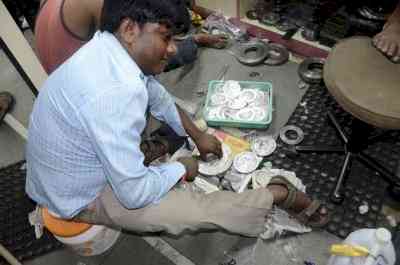No abetment conviction without positive act to instigate/aid suicide: SC

New Delhi, Sep 17 (IANS) The Supreme Court on Friday held that abetment involves mental process of instigating or intentionally aiding a person in doing of a thing, as it quashed criminal proceedings and a non-bailable warrant issued against a woman in a case of an alleged suicide under the SC/ST Act.
A bench of Justices R. Subhash Reddy and Hrishikesh Roy said: "Abetment involves mental process of instigating a person or intentionally aiding a person in doing of a thing. Without positive act on the part of the accused to instigate or aid in committing suicide, no one can be convicted for offence under Section 306, IPC."
The bench observed that to proceed against any person for the offence under Section 306, it requires an active or direct act which led the deceased see no option but to commit suicide, and that the act must have been intended to push the deceased into such a position that he committed suicide.
It noted that there is nothing on record to show that the petitioner was maintaining a relation with the deceased and further there is absolutely no material to allege she abetted suicide of the deceased within the meaning of Section 306.
"Except the statement that the deceased was in relation with the appellant, there is no material at all to show that appellant was maintaining any relation with the deceased," said the top court.
The bench added that it would be travesty of justice to compel the appellant to face a criminal trial without any credible material whatsoever.
The top court's judgment came on an appeal filed by a woman challenging the Allahabad High Court order, which dismissed her plea seeking to quash criminal proceedings and the NBW issued for offences under sections various sections of The Scheduled Castes and the Scheduled Tribes (Prevention of Atrocities) Act, 1989 and Section 306 of IPC.
In May 2018, an FIR was registered at TP Nagar Police Station in Meerut district on the complaint of a man alleging that his brother was called by the petitioner at her house wherein her parents and sister made casteist abuses and forcefully administered poison to him and consequently his brother became unconscious. The complainant claimed his brother died at the hospital due to negligence.
Setting aside the high court order, the bench said: "Except the self-serving statements of the complainant and other witnesses stating that the deceased was in love with the appellant, there is no other material to show that appellant was maintaining any relation with the deceased".


 IANS
IANS 








